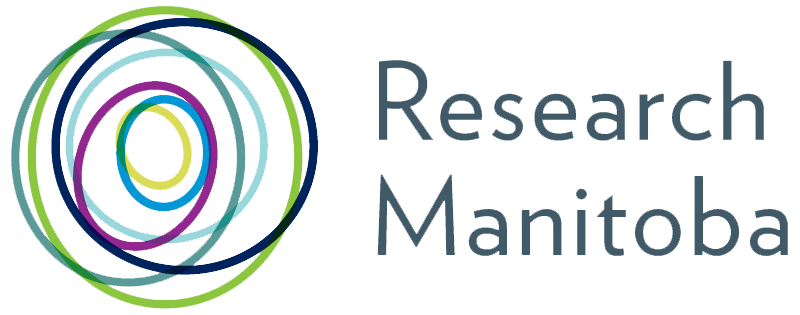In honour of 2022’s National Indigenous Month, below is a spotlight on three recent projects working with Indigenous communities.
A Distinction-Based Study on Equity in COVID-19 Testing among Manitoba First Nations, Métis and Inuit
Name: Nathan Nickel
Institution: University of Manitoba
Department: Community Health Sciences
Funding Category: MB COVID-19 Rapid Response Research Grant
Amount: $99,435
Abstract
First Nations, Metis and Inuit (FN/M/I) Peoples are more likely than other Canadians to be affected by the COVID-19 pandemic. Many FN/M/I experience high rates of poverty and live in over-crowded houses. This makes it difficult for them to practice physical distancing and increases their risk of COVID-19 infection. If they are infected, they may be at risk of developing severe COVID-19 symptoms, due to their higher rates of chronic illness (like diabetes, heart disease and lung disease). Because their health and social services funding is often inadequate, FN/M/I communities may be unable to respond quickly if a health crisis occurs.
To help prevent this type of crisis, this project will provide data on COVID-19 testing in Manitoba, an important initial step to control the spread of the virus. We will use routinely collected data to examine the geography of testing, compare rates among FN/M/I people and other Manitobans, and develop models to predict the number of tests required in Manitoba. By providing this information to FN/M/I and government decision makers, this project will direct COVID-19 resources to areas where they are needed.
A decolonizing approach to the incorporation of traditional Indigenous ways of healing into Manitoba’s bariatric program.
Name: Krista Hardy
Institution: University of Manitoba
Department: Surgery (Medicine)
Funding Category: 2021 Victoria General Hospital Foundation Research Grant (VGHF)
Amount: $34,691, 1 year
Funding Partner: VGHF (100% of funding)
Research Manitoba Support: Provided administration services through utilization of the Grants Management System and associated review/scoring systems.
Abstract
Social determinants of health contribute to higher rates of chronic disease and health inequity for Indigenous Peoples. Globally, the incidence rate of obesity and its related conditions is considerably higher for Indigenous Peoples. Bariatric surgery is the most effective treatment for obesity. Successful surgical outcomes involve a multidisciplinary team with an educational background in healthy lifestyles and behaviour change combined with a traditional biomedical approach. There is a paucity of literature examining the experiences of Indigenous patients undergoing bariatric surgery. However, the existing literature suggests that Indigenous Peoples have poorer access to bariatric care.
The purpose of this research is to employ a decolonizing qualitative methodology to understand the current Indigenous experience of bariatric care in Manitoba through sequential sharing circles and individual interviews. Additionally, we will develop an Indigenous Bariatric Health Working Group with Indigenous Elders, healers and Indigenous bariatric surgery patients to advise on the incorporation of traditional ways of healing into bariatric programs. We believe that offering traditional ways of healing in bariatric programs will empower Indigenous Peoples to actively participate in health care decisions and ultimately lead to an improvement in overall health and well-being.
Determining Community Indigenous Epidemiologist Needs and Priorities
Name: Janelle Poiron
Institution: University of Winnipeg
Department: Development Practice in Indigenous Development Program
Funding Pillar: Social & Population Health
Funding Category: 2021 Master’s Studentship Award
Amount: $12,000
Abstract
Epidemiology is the study of disease and the application of this study to control a population’s health. In Canada, we do not have Indigenous specialized epidemiologists trained to study disease in their communities using a decolonized approach. Kishaadigeh, the Manitoba CIHR funded Network Environments for Indigenous Health Research (NEIHR) project is collaborating with the “Our Health Counts Network” (OHC-Net) to develop a specialized curriculum to train self-identified Indigenous people as epidemiologists/health information specialists through the development and establishment of an applied Indigenous epidemiology training program.
This project will provide the research needed for the creation of this program. The participants will be the five NEIHR partner organizations; First Nations Health and Social Secretariat of Manitoba, the Manitoba Association of Friendship Centres, the Manitoba Inuit Association, Fearless R2W, and Aboriginal Health and Wellness Centre of Winnipeg, Inc. By interviewing staff members, I will determine Indigenous community’s health needs and priorities. Through my supervisor, Dr. Jamie Cidro, a Canada Research Chair in Health and Culture, I will be connected to a broader community and university researchers network. This will allow me to develop relevant research questions while using Indigenous research methods. A report will then be presented back to the communities, and I will present at the annual Ongomiizwin Research Indigenous Health Research Symposium on the findings.
Training in epidemiology was identified as a priority across Canadian Indigenous communities. Training Indigenous peoples will help close the existing health gaps between the Indigenous peoples and their non-Indigenous counterparts by furthering the understanding of Indigenous health outcomes. This research will help shape the curriculum for the training of Indigenous epidemiologists who can track, identify, and close the gaps within the Canadian health system.

